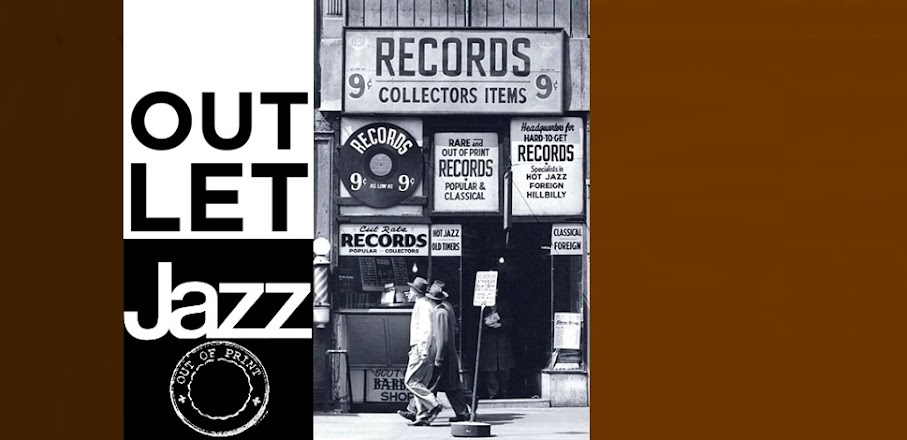Buddy Childers
Sam's Songs
✤Liberty LJH 6009✤
When nominating the top trumpet men in the business, Buddy Childers has been consistently among the leaders. For the past thirteen years, his stiff upper lip has been winning the plaudits of discriminating musicians and fans alike while a member of the bands of Stan Kenton, Woody Herman, Benny Carter, Tommy Dorsey and Charlie Barnet. Except for his stint with Herman in late 1949, however, Buddy has been tied to the lead trumpet chair throughout his career.
"Not that I didn't enjoy blowing lead", he remarked in his rapid, positive manner, "but the fact is I always wanted to play jazz, and the lead book really gets monotonous at times".
Buddy is one of those wonder children of the trumpet who never had musical schooling. He is largely self-taught. Born in St. Louis, Missouri February 12, 1926, he inherited his first horn originally intended for his father "‘who just kept it around the house; he never got around to studying it". Childers played with the high school band in Belleville, Illinois, and at sixteen was auditioning for Stan Kenton in December of '42, an association which continued over an eleven year period. In fact, Buddy's first date was on Kenton's Artistry In Rhythm.
Although Buddy made many records with various bands in small groups during these years, the desire to cut records under his own name, and in his own style, persisted. For eighteen months Buddy worked in the pit band at Hollywood's famous Moulin Rouge. The nightly routine, however, proved too confining and Buddy decided to form his own group so that he "could begin to enjoy playing again!" *John Tynan (liner notes)*
⁂
My reasons for choosing these men [Herbie Steward, Bob Harrington, Harry Babasin and Milt Holland] are twofold. First, they're extremely capable musicians; secondly, they're all close personal friends of mine. Though their names may not be too well known to relative newcomers to jazz music, they’ve all been on the scene for years. Although they all are not now in the so-called main-stream of jazz, I believe they are consistently great performers. After listening to the results, I'm sure you'll agree that they are. *Buddy Childers (liner notes)*
Sam Songs is the first LP by 30-yearold trumpeter Childers, who played lead with Kenton, Woody Herman, T. Dorsey, Carter, and Barnet and jazz horn with Herman in 1949. His sympathetic associates are Herb Steward on tenor instead of his usual lead alto of recent years; pianist Bob Harrington; bassist Harry Babasin; studio drummer Milt Holland, who came out for some air. Unfortunately, due to Liberty's insistence on damaging their squeezing 12 tracks into this one isn't the success been.
The writing (seven by Childers and five by Harrington) is pleasant, with some of the themes quite attractive, but there is no space to develop them, and as a result, a shortened sameness is a post-listening impression. Half as many tunes and some extended blowing and/or more extensive structuring would have made for a higher rating. As it is, Childers blows well and while no giant of jazz trumpet, has taste and a good beat.
It's good to hear Herb, a distinguished ex-Hermanite again. There is some degree of inhibition in Steward's blowing here, perhaps because of his length of time away from the tenor, but his flowing sense of time, good sound, and conception are still evident. Harrington is a swinging, economical pianist and his rhythm section colleagues are effective. The sam-titling is a too extended joke without a punch line. *Nat Hentoff (Down Beat, May 30, 1956)*
Side 1
1 - Honeysuckle Sam
(Buddy Childers)
2 - Sam Metrically
(Buddy Childers)
3 - My Wild Irish Sam
(Buddy Childers)
4 - Sentimental Sam
(Bob Harrington)
5 - Ding Dong, Sam Is Dead
(Buddy Childers)
6 - Sam 'N' Eggs
(Bob Harrington)
Side 2
7 - Deviled Sam
(Bob Harrington)
8 - Wham Sam!
(Buddy Childers)
9 - Thank You, Sam
(Buddy Childers)
10 - Sam's Serenade
(Bob Harrington)
11 - Three Sam's In A Fountain
(Buddy Childers)
12 - Canned Sam
(Bob Harrington)
Buddy Childers (trumpet), Herbie Steward (tenor sax),
Bob Harrington (piano), Harry Babasin (bass), Milt Holland (drums).
Recorded at Western Recorders, Hollywood, California,
November 29 (#2, #3, #4, #8, #9, #12) and December 6 (#1, #5, #6, #7, #10, #11), 1955


https://1fichier.com/?ym5e5wtgvp9vnn9q0rnt
ReplyDeleteMuchas gracias,
ReplyDeleteThank you!
ReplyDelete